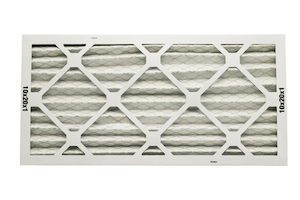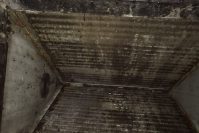 Believe it or not, furnace filters are a very important part of your furnace. They require regular maintenance and can actually cause your furnace to stop working if you ignore them for too long or let them get too dirty. Jeremy Services knows homeowners don’t always know everything when it comes to furnace filters, so we created this quick and handy Furnace Filter Guide. This will answer any questions you may have as well as some you didn’t even know to ask!
Believe it or not, furnace filters are a very important part of your furnace. They require regular maintenance and can actually cause your furnace to stop working if you ignore them for too long or let them get too dirty. Jeremy Services knows homeowners don’t always know everything when it comes to furnace filters, so we created this quick and handy Furnace Filter Guide. This will answer any questions you may have as well as some you didn’t even know to ask!
How Often Should You Replace Your Filter?
Replacing your furnace filter is the most important thing a homeowner can do between seasonal tune-ups to make sure their furnace or air conditioner keeps running. For your basic 1” – 3” air filters, every other month or roughly 60 days is should be sufficient. However, if you have pets that shed or people in your home who suffer from allergies, you may benefit from changing it more often, say, once a month.
Related Read: How to Know When It’s Time to Replace Your Furnace
What Type of Filter Should You Use?
This all depends on how clean you want your air. There are three basic types of furnace filters:
- Fiberglass Filter – This disposable filter is the most commonly used type. These filters are made by layering fiberglass filters over each other to form a screen. They are usually reinforced with a metal grating that supports the otherwise flimsy fiberglass mesh and prevents it from collapsing.
- Polyester and Pleated Filters – These filters are similar to fiberglass filters but are molded in a pleated shape which allows them to have a higher resistance to airflow and a better ability to stop dust.
- High Efficiency Particulate Arrestance (HEPA) Filters – These units filter the air passing through them at a very fine scale. A HEPA filter installed in a furnace would restrict the airflow too much. However, traditional air filters in the higher range of the MERV ratings (12-13) come close to the levels of HEPA filtration, with the exception of virus removal.
What Is a MERV Rating?
MERV stands for Minimum Efficiency Reporting Values. It is an industry-created standard for rating the efficiency of air filters. MERV ratings range from 1 to 16, with a rating of 1 being the least efficient and a rating of 16 being the most efficient. An air filter with a MERV rating between 8 and 11 is fine for most residential homes. If your system can handle a filter with a higher MERV rating, you can go up to a 12 or 13, but remember, filters with a higher MERV rating must be replaced at least every three months to avoid restricted air flow, reduced performance and possibly furnace failure.
What Particles Do Furnace Filters Remove?
Furnace filters collect particles from the air. Common pollutants include household dust, pet hair, pollen, dust-mite debris, mold spores, pet dander, lint, and bacteria. The higher the MERV value, the more efficient the filter will be in trapping airborne particles. Filters with MERV ratings of 12 or up can remove smoke, smog, bacteria, particles that can carry viruses, and particles that can carry odors.
How Can a Dirty Filter Cause Your System to Shut Down
Filters remove particles from the air that is forced through your ductwork and circulates throughout your home. As your filter removes particles from your air, the particles build up on the surface of the filter. This buildup is why it’s important to remember to change the filter regularly. In addition to driving up your utility bill, the reduced airflow through your heating and cooling system can cause your heat exchanger to overheat and shut off too quickly, preventing your house from warming up. If that happens too often, the electronic “limit switch” safeguard can fail, and then the furnace won’t fire up at all. This is a service call that involves a new part and could cost you $150 – $175.
Can Dirty Furnace Filters Affect my Air Conditioner?
Yes. Dirty filters can also cause problems in the summer with your air conditioner. A clogged filter can cause the evaporator or cooling coil to freeze up because not enough air flows past the coil to dissipate the condensation which then freezes. This reduces the air conditioner’s ability to remove heat from the air and will eventually cause it to break down.




